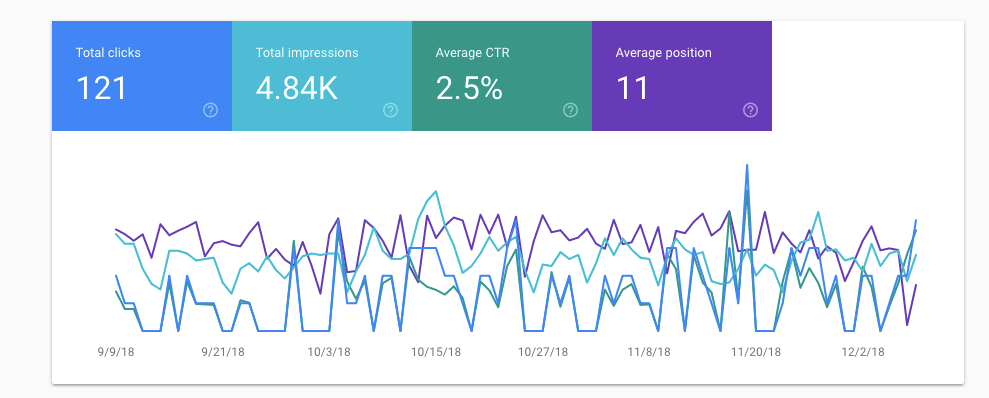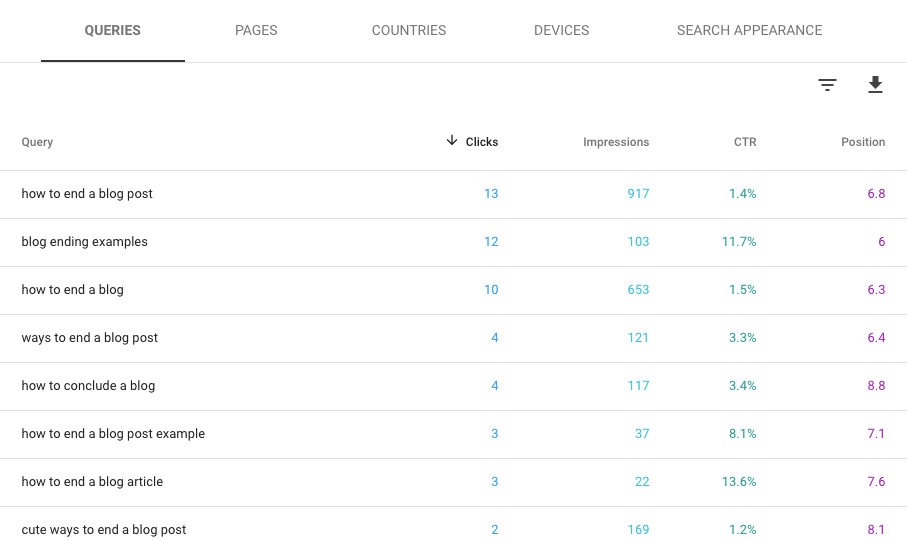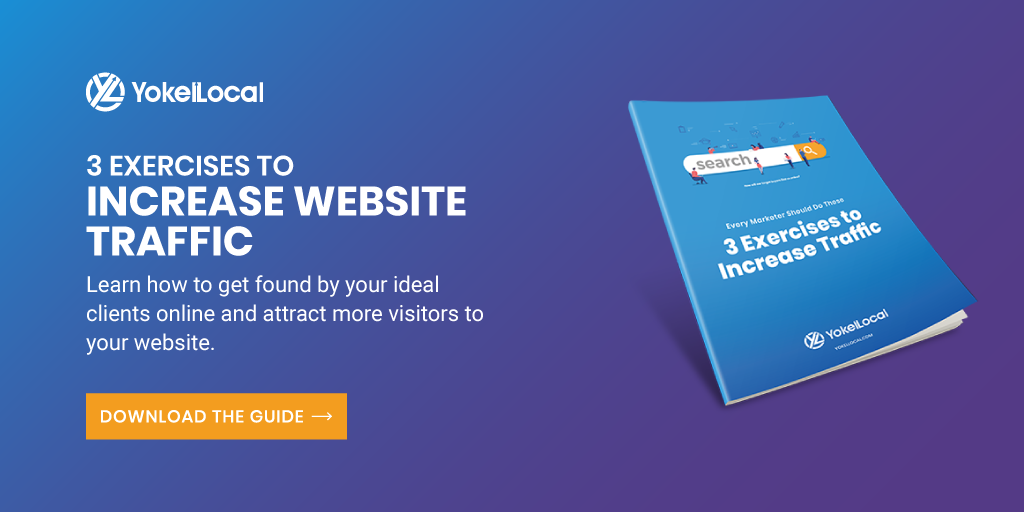How To Find Out Where You Rank In Google Search
Are you always talking about improving your business' website ranking in search engines? Do you lot constantly captivate over appearing on the commencement page of Google for a item keyword so you can drive relevant traffic to your website? Practice you know how to check where your website is ranking on Google if it'south nowhere near the first page? Now nosotros're pretty sure your answers to the first two questions were, "Yes." Just what about the last? CMOs are constantly pressured with proving digital marketing ROI, and it starts with SEO (i function of a holistic marketing strategy) to increase online visibility. SEO (search engine optimization) is essential for whatsoever business organization looking to found a significant online presence. From keywords to catchphrases, a unmarried keyword or slew of words (nosotros refer to them every bit long-tail) tin can determine whether or not a customer clicks on a link to your website—or finds y'all at all after conducting a search on Google. For those of you who have aspirations of one day reaching such a monumental achievement, that is the offset folio of Google, read on to learn how to bank check and monitor your website ranking on Google (and go even more advanced information should you want it!) → Download At present: 3 Exercises to Increment Website Traffic in 2021 Information technology's rather easy to find where your website ranks amid your competitors. You could comport a standard Google search by typing the keywords you want to rank for into Google's search bar. However, because of the manual nature of this chore, we actually don't recommend this method. Additionally, Google search results are not static, and so this method volition simply provide you with a general idea of your website position. In that location are several tools available that can provide a more than comprehensive and accurate moving picture in a more efficient and automated procedure. However, many of these tools are expensive. There is some other option bachelor to you that 's completely costless and accurate - enter Google Search Console. You really Practise NOT have to purchase or use a fancy rank checker tool to get a motion-picture show of how your site is doing on Google… because Google will TELL you themselves. Google's Search Panel (formerly known as Google Webmaster Tools) provides organic ranking data, including: Deplorable folks, if Search Console wasn't already gear up, it won't be able to provide you lot with whatever insights immediately. Withal, setting it up is easy. Login to Search Panel with your Google account. Add a property (aka your website domain). You'll and then be asked to verify your website. This can easily be done through several different methods: The Performance Report dashboard is where all the data magic happens. Clicks, Impressions, CTR, and Average Position At a quick glance, you'll see how many clicks and impressions your website is receiving for a specific time period. You'll also be able to come across what the average click-through rate (CTR) and the average position are for your whole website. You tin click on those 4 boxes at the top (Total Clicks, Total Impressions, Average CTR, and Boilerplate Position). Clicking on these will toggle the information on and off in the chart and table below. Date Range At the summit, you'll find a push titled "Appointment." Depending on when you lot installed the Search Console lawmaking onto your website, the new Search Console lets you access xvi months of information. You can even do comparisons, such as July vs June or iii months verses the 3 months prior to that. This characteristic will help you determine if your website and its pages are improving over time. Click the pencil to edit the date range. Queries If y'all scroll beneath the nautical chart, yous'll run across a tabular array with the post-obit tabs: Queries, Pages, Countries, Devices, and Search Appearance. Under the "Queries" section, you will find all the queries your website is showing for. The table will also show how many clicks and impressions each query received, what position your website ranks for the query (on boilerplate), and the CTR. There are a few different types of filters you can utilise to your data: Search Blazon, Date, Page, Query, Country, and Device. Click on ane of the filters to edit or the plus sign to add some other filter to your data. Yous can have multiple filters on at a time. Search Type: When you search Google, you may notice yous have the option to view image and video search results. The search blazon filter will filter data about your website and its pages past normal spider web search data (default for your data), videos search, and prototype search results. Date: As discussed in Step #2, the new Search Console lets y'all admission 16 months of data. Using the data range filter, you tin select the time frame you want to examine. Y'all can fifty-fifty practice time comparisons, such every bit July vs June or 3 months verses the three months prior to that. This feature will assist you determine if your website and its pages are improving over time. Page: Want to know how a specific page or group of pages are performing? Apply the page filter. You tin can filter by: Once you apply this filter, the data in the nautical chart and the table below will display data for but those filtered pages. Queries: Want to know how your website ranks on boilerplate for a specific keyword or group of similar keywords? Use the query filter. Yous tin can filter past: State: If you are a local business or operate inside ane country, I recommend filtering by the country your business concern operates in. If you are an international business, you can filter by individual countries if you want to see how your website is performing in each country. Device: Allows you to filter information by mobile, desktop, and tablet. You can apply a Query filter (as mentioned in Pace #3) to make up one's mind: So, what do yous need to practice? Choice a specific keyword. For example, I want to know how my website performs for the keyword: "where does my website rank in Google Search." Utilise a query filter. For this specific instance, use a Query is exactly: "where does my website rank in Google Search." Select a Information Range. Make up one's mind what time period you lot desire to look at. Select a comparison if y'all want to see if y'all are improving over time. Go to and select the Pages department in the Tabular array below the nautical chart. You will see what page(s) rank for that keyword (if any), what the average position is for the fourth dimension period yous selected, how many clicks and impressions were received, and the what the CTR was. Yous'll also want to determine what other keywords your homepage ranks for. Follow these steps: Remove whatever Page or Query filters. Apply a Folio filter. Use the "URL is exactly" filter and type in your homepage URL. Select a Date Range. Decide what time period you want to await at. Select a comparison if you lot want to see if yous are improving over time. Become to and select the Queries section in the Tabular array beneath the chart. You lot will see what queries(s) Google is showing your homepage for. It will also give you a breakdown of each query: clicks, impressions, CTR, and average position for the time menstruum selected. Recollect, while your homepage probably does the heavy lifting for website traffic, it's not the simply "door" people enter your site through. Here'southward how to determine other pages that bring in traffic from Google: Remove whatsoever Folio or Query filters. Go to Pages section in the tabular array below the nautical chart. Find a page, other than the homepage, that is bringing in a lot of clicks. Click on that page in the table. This will automatically apply a Page filter to your data. Go to the Queries tab in the tabular array. Review what queries Google is showing this page for. The queries will give you an thought of people's intent and what they want. Now ask yourself: is your folio answering these searches? Knowing where your website ranks in search engines' results is of import. You need to decide which technical on-page elements may be negatively impacting your web page's ranking. One you fix these, you can create a smoother user feel for visitors to your site. Yous can then better optimize your site for the keyword yous want to target to attract quality visitors, and ideally, customers and make evangelists. Ultimately, your site'south ability to turn strangers into customers is key to helping your concern thrive in the new economy. Finding the Position of Your Website in Google Search
6 Steps: An Accurate Style to Determine Where Your Website Ranks in Google...For Costless
one. Set Search Console
two. Get to the Performance Report Dashboard [Already Familiar? Skip to Stride 3 for More than Advanced Information]


iii. Filter Your Information

4. Use the Query Filter to Make up one's mind the Website Ranking for a Specific Keyword
5. Determine What Keywords Your Homepage Ranks for in Google by Applying a Page Filter
6. [More Advanced] Decide What Other Pages Are Bringing in Traffic and How They Are Performing
At present that You Know Where Your Website Ranks, You're Probably Wondering How to Improve It

Call up to share this commodity!
Source: https://www.yokellocal.com/blog/check-website-ranking-on-google
Posted by: novakdartakifinee.blogspot.com


0 Response to "How To Find Out Where You Rank In Google Search"
Post a Comment